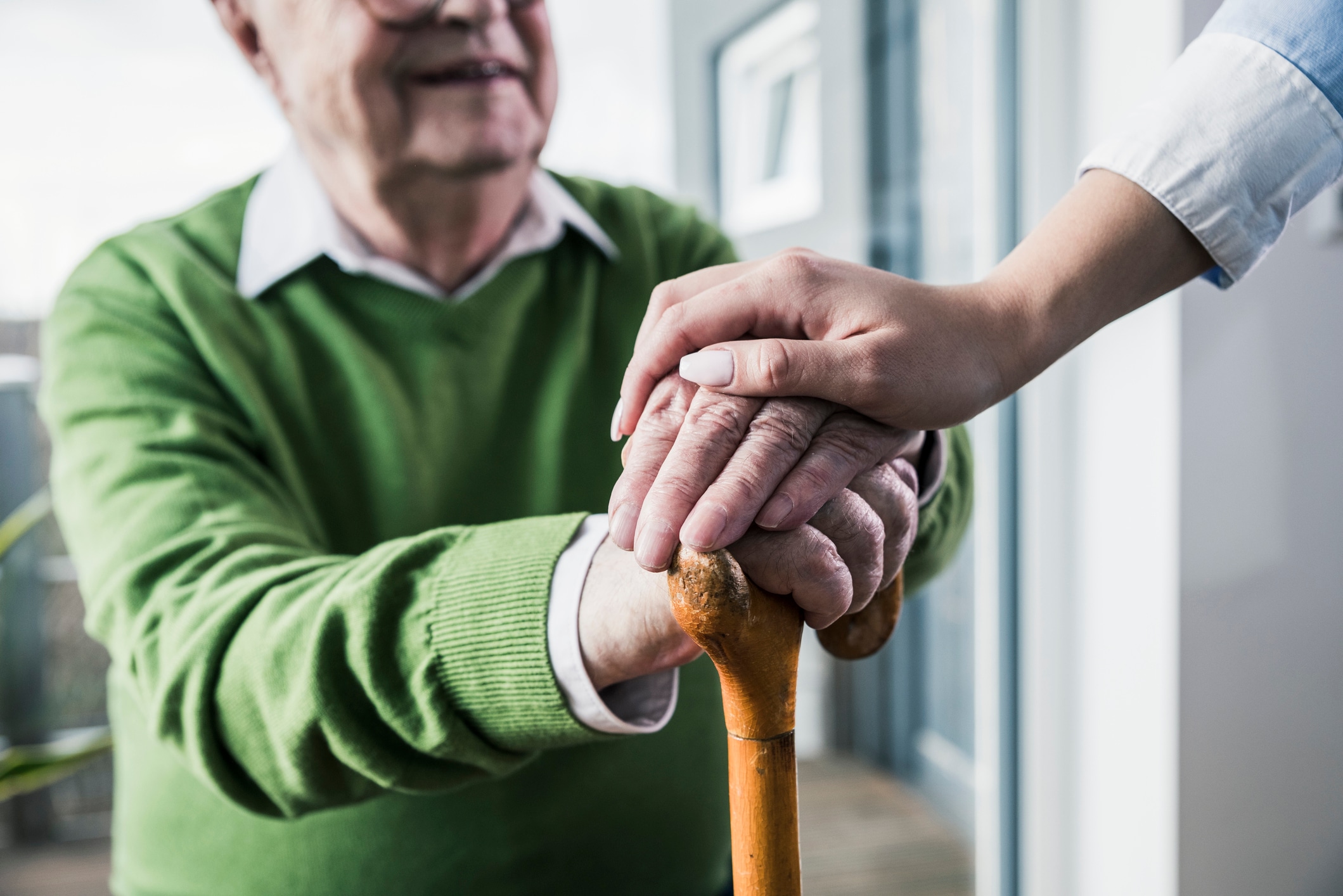As people age, the likelihood that they’ll need care, either in the form of assisted living or another option, increases. But how do you know when it’s time to make the transition from aging in place to an assisted living community?
It’s a challenge for both seniors themselves and their loved ones. “Many times, families will come to me unsure of what to do about an elderly loved one’s living situation,” says Dr. James P. Richardson, chief of geriatric medicine at St. Agnes Hospital in Baltimore, Maryland. “Patients have differing needs and resources.” Determining if assisted living is the answer means evaluating factors like physical and cognitive health, finances and how well you or your loved one is able to manage the activities of daily living.
Here are the signs it might be time for assisted living to take into consideration when deciding on the best care solution for yourself or your loved one.
Key takeaways
- Every person will have different health needs as they age, but strong indicators that it might be time for assisted living include changes in health, as well as emerging struggles with home management and social engagement.
- Assisted living is beneficial because it allows seniors to maintain independence while also providing a supportive environments and professional assistance. Being in assisted living helps address issues around physical and mental well-being, as well as preventing social isolation.
- Assisted living offers a different kind of support than a nursing home environment. Seniors are allowed and encouraged to be as independent as they can be safely.
What are the signs it might be time for assisted living?
1. Changes in physical health
Changes in physical health and overall well-being are often the catalyst for a senior to move from their home or another independent living situation to assisted living. Some signs to look for, according to Dr. Ann Kriebel, a family and gerontological nurse practitioner and faculty member of Walden University, include:
- Vision changes.
- Hearing issues.
- Losing weight or gaining weight.
- Increased difficulty walking or falling, especially if a home has a lot of stairs.
- Poor coordination.
- Increased frailty.
2. Changes in cognitive health
It’s normal to experience some declines in cognition as we age, but when these changes make it difficult to manage your day-to-day life, it might be time to speak with a doctor and consider an environment with more support. Some signs of increasing cognitive issues include:
- Medication mismanagement, like forgetting to take medications or taking the wrong amounts.
- Confusion about the time, date or what year it is.
- Ongoing forgetfulness, such as continually misplacing items.
- Self-neglect around basic needs, like bathing or keeping clothes clean.
3. Difficulty with activities of daily living
If you or a loved one is living independently or aging in place at home and finding daily tasks difficult, it might be time to consider the extra support of an assisted living community. Some signs that might suggest a need for additional help include, according to Kriebel, include:
- Struggling with meal preparation or grocery shopping.
- Experiencing safety issues with cooking or heating.
- Being unable to do household chores like dishes, cooking or cleaning.
- Struggling to keep up with minor housework, yard work and home repairs.
- Difficulty showering, using the toilet or getting dressed.
4. Trouble managing appointments and paying bills
Sometimes a senior will show difficulties with Instrumental Activities of Daily Living (IADLs). These are different from self-care tasks like eating or dressing, but they are still essential for health and well being. According to Kriebel, signs you or your loved one may be having trouble with IADLs include:
- Difficulty managing doctor appointments or other engagements.
- Forgetting bills, rent or mortgage, taxes and other cost of living expenses.
- Needing safer transportation for errands, appointments or social engagements.
“There is often a waiting list for acceptance into a facility. It is always best to talk when [you or] your loved ones are healthy and have a clear perception of what you or they want in a facility.”
— Dr. Ann Kriebel, family and gerontological nurse practitioner
5. Social isolation
In order to continue to live independently as they age, seniors need to have a strong support system in place, which may include family nearby, meaningful friendships and/or ties to the community. If you or your loved one live far from family or don’t have people who can help manage daily activities and provide mental and emotional support, assisted living may be a more beneficial living option.
6. Mental health issues
“Being cooped up in the house, unable to do the things they enjoy or even just socialize with other people, can cause anxiety and depression in seniors. The only way to remedy this is through engagement often granted by a communal living environment,” says Laurie Gaines, director of care coordination at Always Best Care.
At other times, mental health issues may be caused by dementia or the death of loved ones and friends. Whatever the case, having the extra support that an assisted living facility offers can be instrumental in stabilizing a senior’s mental health.
7. Increased dependence on family
There is nothing wrong with needing help yourself or helping an older loved one out, but if a person is needing more assistance than others in their life can provide, it may be time to consider assisted living. According to Kriebel, red flags that could indicate that you or your loved one needs more help include
- Increased dependence on others for daily tasks.
- Increased need for someone to “cue” you to take medication, bathe or eat.
- Calling on others frequently for emotional support, transportation assistance or help with home tasks like organization or paying bills.
8. Loss of a support network
When a senior loses their local support network, it can increase feelings of loneliness and social isolation. Assisted living can offer a built-in network of social support that is vital for seniors.
Kriebel says to notice any of the following signs that you or your loved one is becoming less socially engaged:
- Having several friends move away.
- Having fewer social engagements than before.
- Lacking connection to their community.
- Being reluctant to socialize with peers or participate in local activities.
9. Family burnout
If you’re caring for a spouse, parent or older loved one, pay attention to how your own mental well-being is affected. If you’re unable to tackle your own daily tasks (such as completing work or taking care of other family members) or are having health issues (such as anxiety or depression) because a loved one needs more assistance than you can reasonably offer, it might be time to consider assisted living.
Read more:
10. It feels like an emergency is just around the corner
It may feel like you or your loved one is managing OK, but if there are signs that a more major problem — like a fall or serious health issue — could be on the horizon, it’s best not to wait for an emergency to occur.
“Having time to make informed decisions and time to look for a good assisted living facility… is always best,” says Kriebel. “There is often a waiting list for acceptance into a facility. It is always best to talk when [you or] your loved ones are healthy and have a clear perception of what you or they want in a facility.”
A final consideration when deciding to move to assisted living
Well-meaning family members may not have the time or skill to become caregivers. In an assisted living facility, residents can maintain independence while still having access to the professional care they need. There are activities, group meals and more opportunities to socialize. “It isn’t the end of life; it’s a new life, ” Gaines says.
Remember, assisted living offers a different kind of support than a nursing home environment. Seniors are allowed and encouraged to be as independent as they can be safely (such as bathing on their own and handling their own medications). “Assisted care professionals are only there to help them with their needs — they won’t take over,” notes Mitchell.
Ultimately, assisted living is not about giving up total independence, but about having assistance available when necessary to improve quality of life for both seniors and their loved ones. As Kriebel concludes, “An assisted living facility should care not only for your loved one’s physical being but also their mental and spiritual well-being.”
With additional reporting by Randy Mazzella.





